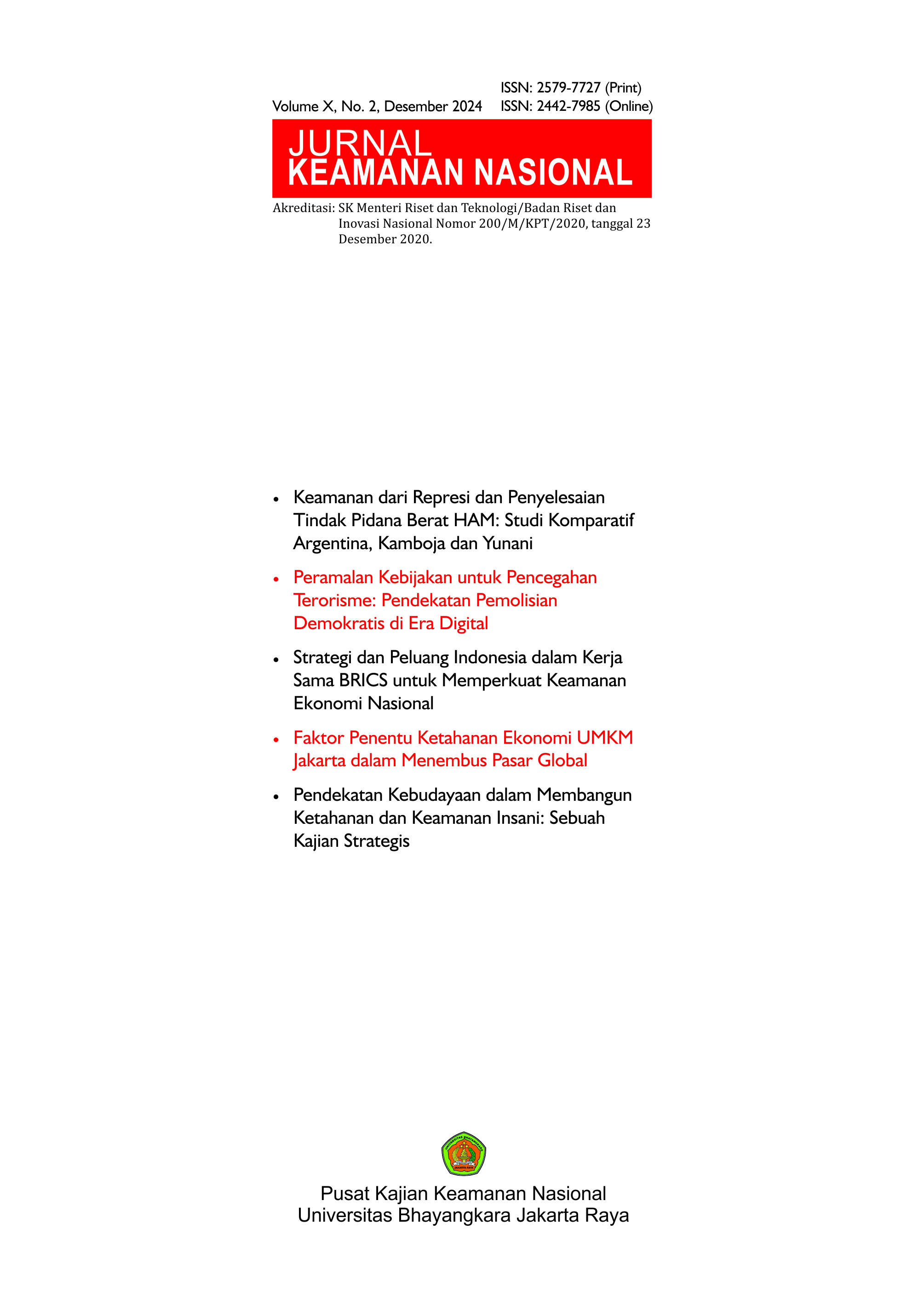Keamanan dari Represi dan Penyelesaian Tindak Pidana Berat HAM: Studi Komparatif Argentina, Kamboja dan Yunani
DOI:
https://doi.org/10.31599/ygs7xe96Keywords:
Human Rights Violations; State Repression and Security; Transitional Justice; International Support and StabilityAbstract
Human rights are often perceived as obstacles to achieving national security, especially in the context of addressing past serious human rights violations. State repression plays a role in national security by impacting national stability, public trust, radicalization risks, international reputation, and economic outcomes. Thus, it is essential to examine how different countries have approached the resolution of past serious human rights crimes and how these approaches contribute to security from the perspective of repression management. Argentina, Cambodia, and Greece represent regions that have endured past severe human rights violations. The processes of addressing these violations in these countries offer valuable insights that Indonesia can consider in addressing its historical human rights issues. This study finds that nations like Greece and Argentina, which have effectively resolved past human rights abuses and gained international support, have seen reductions in repression, thus enhancing the intended security outcomes. In contrast, Cambodia's delayed and fragmented approach, lacking state commitment and international attention, has resulted in differing impacts on security compared to the outcomes observed in Greece and Argentina.
Downloads

Published
Issue
Section
License
Copyright (c) 2024 R. Indah Pangestu Amaritasari, S.I.P; M.A (Author)

This work is licensed under a Creative Commons Attribution 4.0 International License.
Please read and understand the copyright terms for submissions to this journal.
Copyright Notice
The Jurnal Keamanan Nasional is under the Creative Commons Attribution 4.0 International (CC-BY 4.0) License, according to which:
1) Authors retain copyright and grant the journal the right to first publication, with the work simultaneously licensed under the Creative Commons Attribution (CC-BY 4.0) that allows the sharing of articles published with the acknowledgement of authorship and the initial publication in this journal.
2) The authors are authorized to make additional contracts separately for distribution of the version of the work published in this journal (for example, publication in an institutional repository or as a chapter of the book), as long as there is recognition of authorship and initial publication in this journal.
3) Authors are authorized and encouraged to publish and distribute their work online (for example, in institutional repositories or on their personal pages) at any time before or during the editorial process, as it increases the impact and reference of the published work.












